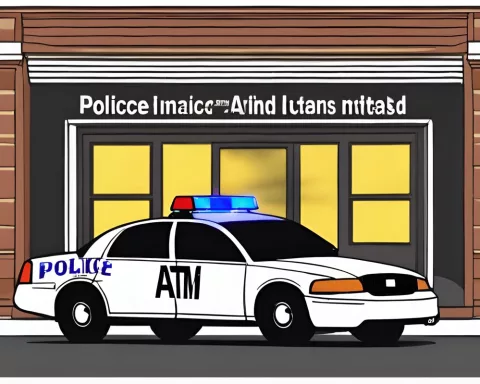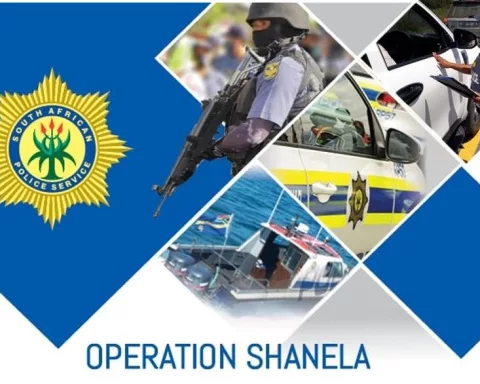Johannesburg was alarmed when high-profile businessman Julius Swart disappeared without a trace for almost two months. He was finally found safe and ready to reconnect with his family, but his case highlights the larger issue of missing persons in South Africa. The Pink Ladies, a non-profit group that locates missing individuals, described Swart as “vulnerable,” reminding everyone of the need for immediate intervention and precautionary steps to help find missing persons. Reporting missing persons is a desperate expression of love and hope for those left behind, and swift action is essential to protecting citizens and ensuring safe reunions.
Disappearance and Discovery: The Case of Johannesburg’s Julius Swart. Johannesburg was recently rattled by an unusual wave of unease as a high-profile personality vanished without a trace. Swart was finally discovered unscathed and prepared to reconnect with his family. This story serves as a bleak reminder of a more profound issue troubling South Africa. Reporting a missing individual goes beyond the act of fulfilling a civic responsibility; it represents a desperate expression of love and hope for those struggling with the vacuum left by the absence of their loved ones.
The Unsettling Disappearance
Johannesburg, a city pulsating with vitality and zest, was recently rattled by an unusual wave of unease as a high-profile personality vanished without a trace. Julius Swart, joint proprietor of the esteemed Hannon brand and the estranged husband of the famed Glam Guru, Hannon Bothma, had inexplicably retreated from the public domain for nearly two months.
In a world where every nugget of information is just a click away, the abrupt vanishing of a public persona naturally arouses community alarm. Swart, a 59-year-old gentleman, was last spotted in Bramley, Johannesburg. His last communication with his family was on January 23rd, 2024, and his baffling and sudden absence spawned a series of unanswered questions and worries.
The non-profit group, The Pink Ladies, committed to locating missing individuals, portrayed Swart as “vulnerable”, sketching a portrait of a man silently contending his personal struggles away from the public gaze. His disappearance’s mystery amplified as he had voluntarily withdrawn from the public life after declaring his divorce from Bothma in February 2022. This separation, after a collaborative voyage of 30 years, further complicated the plot.
The Joyous Reunion
Swart was finally discovered on a tranquil Friday afternoon in Sandton, unscathed and prepared to reconnect with his family. The elating news provoked a quiet exhalation of relief amongst those anxious for the past two months, yearning for a positive conclusion to this strange story.
However, the story of Swart serves as a bleak reminder of a more profound issue troubling South Africa. The country records a distressing number of missing person cases every month, with figures from Missing Children South Africa (MCSA) indicating 60 to 90 cases. These alarming statistics accentuate the necessity for immediate intervention and precautionary steps.
Bianca Van Aswegan, a spokesperson from MCSA, encourages residents to promptly report missing person cases. She cautions that within the initial 48 hours, a missing individual could be potentially transported across national boundaries for human trafficking. This harrowing scenario underscores the significance of rapid response, particularly in cases involving missing children.
Dispelling Myths and Urging Prompt Action
Van Aswegan debunks the common misconception of waiting 24 hours before reporting a missing person. She emphasizes the need for swift action, which facilitates the South African Police Service (SAPS) in executing their responsibilities quickly and protecting the country’s citizens more effectively.
Reporting a missing individual goes beyond the act of fulfilling a civic responsibility; it represents a desperate expression of love and hope for those struggling with the vacuum left by the absence of their loved ones. The quicker the SAPS can initiate action, the higher the probability of an expedient resolution and reunion.
While Swart’s story serves as a warning, it also symbolizes a glimmer of hope. It demonstrates the significance of community alertness and immediate action in missing persons cases. It underscores the role each person can play in protecting their fellow citizens, contributing to a safer, more secure society’s fabric.
What was the cause of alarm in Johannesburg recently?
Johannesburg was alarmed when high-profile businessman Julius Swart disappeared without a trace for almost two months.
Was Julius Swart found after he disappeared?
Yes, Swart was finally found safe and ready to reconnect with his family in Sandton.
What issue in South Africa does Swart’s case highlight?
Swart’s case highlights the larger issue of missing persons in South Africa and the need for immediate intervention and precautionary steps to help find missing persons.
What is The Pink Ladies?
The Pink Ladies is a non-profit group committed to locating missing individuals.
How many missing person cases are recorded every month in South Africa?
South Africa records a distressing number of missing person cases every month, with figures from Missing Children South Africa (MCSA) indicating 60 to 90 cases.
Why is prompt action important in missing persons cases?
Prompt action is important in missing persons cases because within the initial 48 hours, a missing individual could be potentially transported across national boundaries for human trafficking. Reporting a missing individual goes beyond the act of fulfilling a civic responsibility; it represents a desperate expression of love and hope for those struggling with the vacuum left by the absence of their loved ones.












